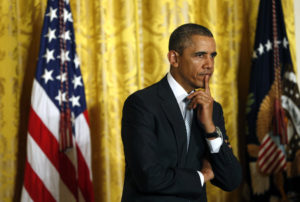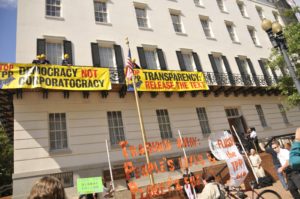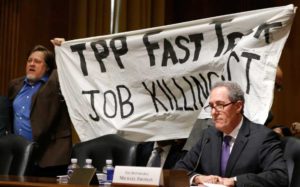
Of all the national demonstrations that have erupted under the Black Lives Matter movement, the people of Baltimore were more successful than others in one key area—getting the nation to realize that their frustration extended far beyond the death of a young Black man.
Freddie Gray’s death was just one of many tragedies the people of Baltimore have been left to face. Years of oppression have made tensions in the community so volatile that many residents were not even surprised to see riots erupt. When their frustrations are not about the deaths of Black citizens being targeted by a racially biased justice system, they are about the lack of quality education for the youth, or the dwindling employment opportunities for residents, or the crumbling economy that has forced many of them into bleak cycles of poverty.
These are the people that the president’s policies should bring to the top of the political agenda, but his latest move is leaving America’s wealthiest residents with a greedy smile across their lips as low-income communities brace for what is expected to be yet another devastating hit.
Success for local economies is one of the first stepping stones to helping America rescue cities like Baltimore and Ferguson but the TPP comes with frightening possibilities. The ominous bill could essentially snatch economic opportunity away from local communities and hand them over to major corporations, both domestic and foreign.
“The combination of environmental sustainability and community wealth building is a powerful opportunity for local 
Labor unions and environmental groups have even adamantly pushed for Congress to slam the TPP down after expressing concerns that it will only make problems like income inequality worse, while giving powerful corporations even more wiggle room to slide by key regulations.
Croft added that the TPA would actually include penalties for those who have snatched businesses away from major corporations as a part of the “buy local” movement. If a major corporation files a grievance insisting that they lost a substantial amount of profits due to such movements, it could be left up to the taxpayers to actually reimburse the corporate powerhouses for the lost revenue, City Paper reports.
Many critics believe this is exactly why several of the bill’s details have been kept under wraps while garnering an overflow of support from those who are wealthy enough to actually purchase businesses that fill urban communities and turn them into office buildings, parking lots and hotels.
Last week, a collection of elite business people signed a letter to the state’s congressional delegation in hopes to convince them to support the TPP, the Huffington Post reports. The letter comes amidst concerns that there isn’t enough support for the bill because many Democrats were hesitant of backing such an agreement that seems to be harmful to the very demographic that provides a majority of their votes.
Despite concerns that the agreement could critically injure local economies, America’s wealthiest hailed the pact as a “catalyst for creating new jobs in the United States” that could ultimately benefit “American workers in a broad range of industries.”
The question is, just who exactly would be receiving the jobs created by such a pact?
Would this give any employment opportunities to those struggling to stay above the poverty line, or is it a garden of fresh opportunity for upper class, wealthy entrepreneurs who aren’t in dire need of government assistance?

Fox News mogul Rupert Murdoch and Blackstone Group CEO Stephen Schwarzman are among the signatures on the letter.
As the Huffington Post pointed out, Schwarzman is the same man that once “compared the prospect of raising taxes on private equity magnates like himself to Hitler’s invasion of Poland.”
The president can mentor young Black men all he wants. He can launch nonprofit after nonprofit. But if the real goal is giving new life to impoverished communities and sparking a resurgence among middle class America, the TPP seems like more than just a misstep.
It’s a major hop, skip and tumble in the wrong direction.


